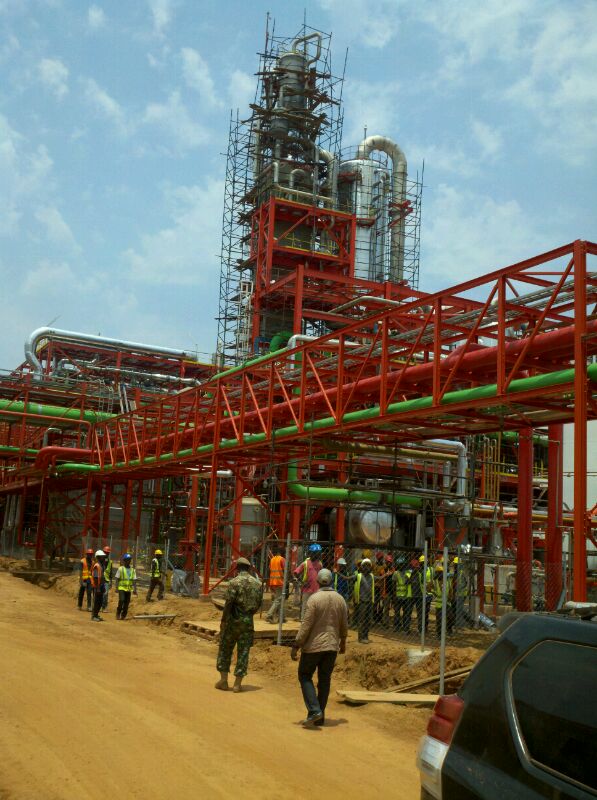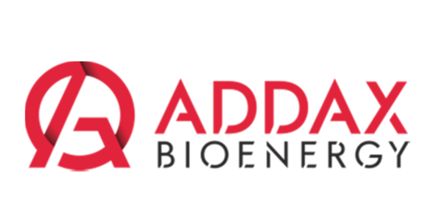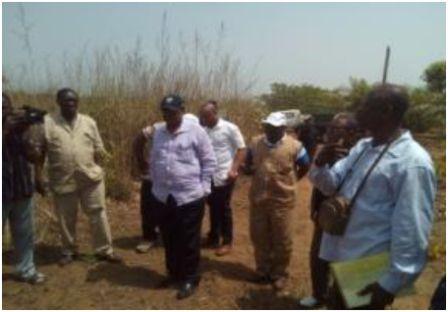Addax Bioenergy certified by Roundtable on Sustainable Biomaterials
Addax Bioenergy (SL) Limited has been fully and formally certified under the Roundtable on Sustainable Biomaterials (RSB). This is said to quite an achievement and everyone involved has to be commended. RSB is recognized as being the highest standard for certification of sustainability. The Sugarcane estate, the Production plant, the Transport to port in Freetown, the Storage and shipping to customer are now certified against the world’s most stringent sustainability standard for biomaterials / biofuels / bioenergy.
A brief draft text explaining the certification states that, “Addax Bioenergy SL has expanded their RSB certification scope. Originally encompassing the 10,000 hectare sugarcane estate, the RSB chain of custody certification has been granted to also include the production plant for biofuel, transport to port in Freetown and storage and shipping to customers. The audit summary report is available on the RSB website, www.rsb.org.”
Addax Bioenergy received this certification following an independent audit conducted by Den Norske Veritas (DNV) in November 2013. An important aspect of the audit was independent investigation into the formal complaints lodged against the previous audit of Addax Bioenergy and the RSB standard by certain Sierra Leone and international NGOs. The Auditors, who spent 13 days in country, found that none of their claims could be verified and all claims were officially dismissed in the public DNV report, which states no objective evidence from the complainants was presented in support of these claims.
This audit by a recognized and independent entity (DNV) is important recognition of the sustainable practices implemented by Addax Bioenergy.
It can be recalled that several allegations and complaints were made by some so-called civil society and Non-Governmental Organizations of which the audit conducted proved to be wrong.
The DNV audit regarding the complaints by Bread for All and Sierra Leone Network on Right to Food on RSB Certificate of Addax Bioenergy states:
DNV AUDIT REGARDING THE COMPLAINTS BY BREAD FOR ALL AND SIERRA LEONE NETWORK ON THE RIGHT TO FOOD ON RSB CERTIFICATE OF ADDAX BIOENERGY
Complaint reference: “Weak audit process and inadequate criteria for biofuel assessment”, dated 2013-09-10, from SiLNoRF and BfA.
Public reference: The full DNV Public Report dated 2014-03-27 at: http://rsb.org/pdfs/reports/Addax_Bioenergy_RSB_Public_Report_2014_03_27%20.pdf
|
Complaint |
Evidence received |
| Food Security and the Effectiveness of the FDP: The amount of planting area has been reduced. The yield amount being report are inflated. | Generally, on all issues raised about Food Security and the Effectiveness of the FDP, objective evidence from the complainant to verify presented claims are missing. DNV used these allegations as input to the audit in November 2013. If no objective verifiable evidence is presented by the complainant, the audit used random sampling, stakeholder meetings, as well as input from the project´s grievance process, received by Addax Bioenergy. The reduction of planting area in the FDP program is based on actual monitoring of the yield from the planted area. The initial area was based on assumptions of a very low yield. The new assumptions and calculations are considered relevant by the Lead auditor. |
| Food Security, Sustainability of FDP: The FDP is promoting a farming model that encourages heavy reliance on heavy external inputs. | This complaint was not possible to verify; no objective evidence was presented in support of this claim. The vast majority of the interviews indicate that food production has increased without the use of any fertilizers or other non-sustainable practices. |
| Food Security, Duration of the FDP: The farmers have to pay during year 2, 3 and full cost during year 4 of the FDP programme. They may not be able to pay the cost. | This complaint was not possible to verify; no objective evidence was presented in support of this claim. The vast majority of the interviews indicate that there was no cost recovery applied to the villages for the first three years of the program – despite there being an agreement for villages to make a contribution. While there was concern voiced by many of the villages that they may not be able to make it without the ploughing assistance of the FDP at the end of the program, Addax Bioenergy indicated that there is a soft landing planned for those coming off of the program where ploughing would be provided but only at cost price (Farmer Development Services, FDS). |
| Food Security, Duration of the FDP: Communities reported that they have to repay the seeds and, in some cases, the fertilizers to Addax with rice bags. As a consequence, for the first time in 2013, more than 150 farmers were kicked out of the FDP for failing to pay back the costs to Addax. | This complaint was not possible to verify; no objective evidence was presented in support of this claim. The agreement requires seed rice be given to the program to ensure a seed stock for the following year. If any household gave (more than zero) seeds they were allowed to continue in the program. Those that refused any were assumed to be non-participants and were excluded from the program the following year. If no seed was given, it was viewed as an indicator that the farmer was not interested in participating in the program and were therefore not included. No fertilizers were demanded from villagers at all as no fertilizers are applied to rice fields in the FDP. |
| Food Security, FFLS: Many community members reported they encountered difficulties in putting into practice what they have learnt in the Farmer Field and Life School (FFLS) because they lack the productive resources. There are no opportunities after graduation. | This complaint was not possible to verify; no objective evidence was presented in support of this claim. Interviews with young adults at one village indicate that they took what they learned and brought it back to the village and now they are growing vegetables and production has increased. |
| Violation of criterion on Free, Prior and Informed Consent (FPIC): Addax violate the criterion 2b because FPIC was not insured by the company. | Interviews indicate that in the beginning, there may have been some confusion regarding leases, etc. However, the majority of people at the UNIMAK stakeholder meeting indicated that Free, Prior and Informed Consent (FPIC) was achieved. In addition, as the project continues, clarity has greatly improved. |
| Violation of criterion on FPIC: Juicy promises were made for many things that has not been delivered, Claims that Addax secured the free prior and informed consent of communities for the takeover of their lands are very doubtful as it was gained through promises to the land owners and users. | This complaint was not possible to verify; no objective evidence was presented in support of this claim. There was no evidence that demonstrated “promises” as mentioned in the complaint, were made. Interviews did not indicate any “broken promises” from any of the land owners, only the complainant. |
| Water and FPIC: Waterlex state in a report that they regret the non-disclosure of the water agreement signed between the company and the Stare. Further, they question the validity of the prior informed consent of the local population, based on the fact that the later might have not foreseen the risks presented in this document with regards the enjoyment of their right to water. | This complaint was not possible to verify by any of the interviews conducted. There were no complaints regarding a loss of use of water. |
| NAMATI and SiLNoRF visit to chiefdoms: For the first time since Addax Bioenergy is operating in the region, a lawyer from NAMATI explained the content of the Land Lease Agreement to the land owners. | This complaint was not possible to verify; no objective evidence was presented in support of this claim. The majority of responses to the question of understanding the lease agreement, was that it was understood, being explained in local language when needed. |
| Consent: Only positive information was given about the project and communities felt forced to sign. The lease agreement was not explained. | This complaint was not possible to verify; no objective evidence was presented in support of this claim. Interviews indicated that consent was given and the majority agreed that the communities are better off now than before Addax Bioenergy.The company has also evidenced that both land lease documents and ESHIA documents were publicly disclosed in lengthy formal extensive and intensive stakeholder dialogue involving communities, local landowners, Chiefdom Councils and Districts and legal representation. |
| Addax Bioenergy providing legal aid: Landowners claimed not to have had any interaction with the lawyer. Communities not consulted in the selection of a lawyer for them. Landowners that had interacted with the lawyer claim they felt that he was working for Addax and not the communities. They signed the acknowledgement agreements and vouchers without any legal guidance. | This complaint was not possible to verify; no objective evidence was presented in support of this claim. There were no complaints by villages that they were denied the opportunity for different legal counsel. |
| NAMATI read and explained the content of the lease to the community members in their own language: For most it was the first time that they heard the content of the lease. They expressed dissatisfaction with leased area, commons, rent, social obligations, important environmental obligations. | This complaint was not possible to verify; no objective evidence was presented in support of this claim. Interviews indicated that the agreements were delivered in Temne and were understood. |
| Involuntary re-settlements: | This complaint was not possible to verify; no objective evidence was presented in support of this claim. The only group (Fullah herdsmen) that was re-settled did agree and interviews indicated that they were quite happy with the re-settlement. |
| Water assessment: | This complaint was not possible to verify; no objective evidence was presented in support of this claim. A water assessment has been completed there is no expected impact to water usage for the villages impacted by the distillery. |
| Cumulative impact (food security): | DNV has assessed the compliance by Addax Bioenergy to RSB minimum requirements for Principle 6 (food security) and the indicators under this principle. As far as DNV understand there is no indicator asking for an analysis as the one described here. During the on-site audit 2013, the indicators for food security were audited. |
| Cumulative Impacts (Water): | Water management requirements under Principle 9 have been evaluated for compliance. Water quality records were reviewed. While there were a couple of instances where the results did not meet the requirements, they were primarily conductivity overages due to the mining in the area, which is not caused by Addax Bioenergy project. |
| Indirect Impacts on forests: | Principle 7 was audited during the certification audit, and the planned corridors and planting was checked on-site as well as breeding of seedlings. |
| Food insecurity in Sierra Leone: | The participating operator and the certification body have to follow the requirements under principle 6 in food insecure areas. If they comply with those requirements they can be RSB certified. Food security and availability was audited in great detail. Addax Bioenergy could demonstrate the determination of required calories and what that equated to in rice. They have begun to expand the farming program by adding vegetables to the crop to add variety and increase crop types. Extensive socioeconomic monitoring including household surveys and focus groups are completed annually and biannually as well as health indicator surveys to qualitatively and quantitatively measure the effectiveness of mitigation and management measures as the site changes. |
Stay with Sierra Express Media, for your trusted place in news!
© 2014, https:. All rights reserved.





